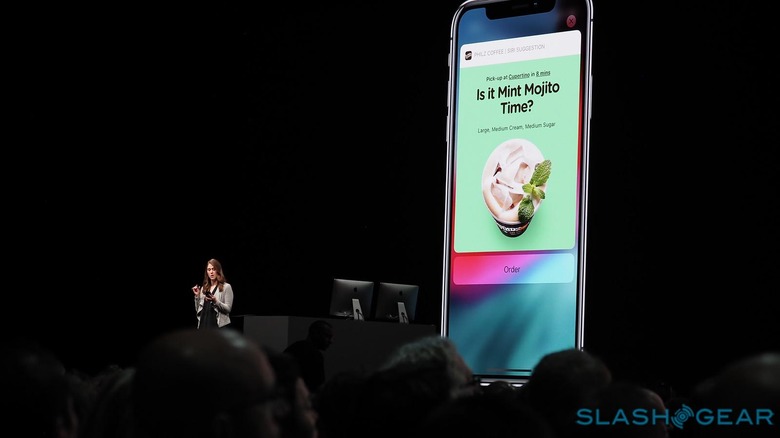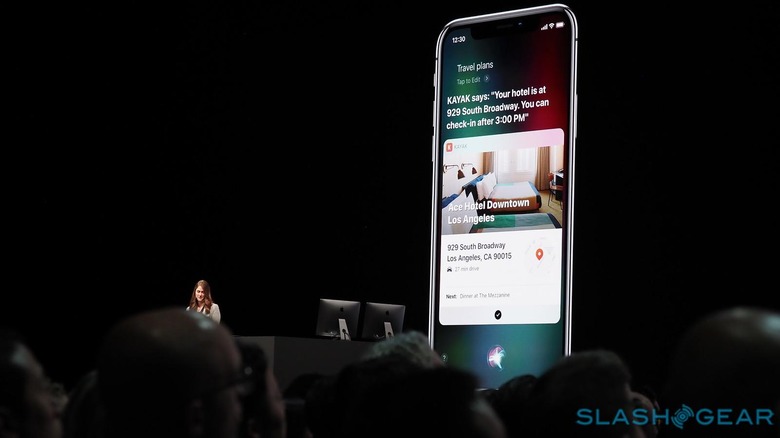Siri is about to leave Alexa, Google Assistant in the dust
Although Siri has been the first popular and widely known voice-controlled smart assistant, it has been shoved to the sidelines by the rapid expansion of the likes of Amazon Alexa and Google Assistant. At WWDC earlier this month, Apple showed it still had some fight left. It introduced Siri Shortcuts and, more than just catching up with third-party integration, it's going to change the game that will hopefully make smart assistant even smarter. But probably not before it shames its rivals.
Shortcuts to productivity
At WWDC 2018, Apple introduced the concept of Shortcuts, the umbrella term for Siri's new capabilities. At its simplest, it is just a way to instantly access a very specific action inside an app. Not just a general action like "order coffee" but something like "order this particular type of coffee that I order all the time". Or as people normally say it, "the usual". It's practically a "one touch" button to most used actions or features of an app or service.
It's an admittedly very simple change that has tremendous repercussions because of where Siri lets you access these shortcuts and how. Of course, you can manually bring up those shortcuts by asking Siri or typing some queries but the real fun begins when you consider the other methods of using

Shortcuts to your latte
While you can manually invoke Siri Shortcuts, that's not exactly the best use of your time nor the best example of how AI will supposedly make our lives so much more convenient. In fact, most of the time, those Siri Shortcuts will probably pop up on your lock screen. These are Siri Suggestions, the proactive suggestions of shortcuts that will depend on particular contexts, like time of day, location, or current activity. Near your coffee shop on your way to work? Siri will offer a Shortcut to order "your usual", ready for pickup by the time you arrive.
This is really how AI assistant should behave. Many of them, especially Google Assistant, already know a lot about us but still fail to actually come up with those "answers" before we have to ask them. It's actually disappointing that we even have to ask, considering these assistants know our appointments, or locations, our accounts, and our habits. Yes, it's frightening how much of our lives they have access to (imagine if Facebook had an actual AI assistant), but might as well put that to good use.
Shortcut to Shortcuts
It doesn't end there though. While Siri Shortcuts can be directly used from Spotlight, Lock Screen, Apple Watch, or voice, it also has one more incarnation that is yet to come: the Shortcuts app. This app also basically answers one of the biggest mysteries in iOS circles: what did Apple do with its Workflow acquisition.

The Shortcuts app will basically let you daisy chain shortcuts into a single one. Think of it like HomeKit, except not limited to smart home integrations. Based on the interface Apple showed, the Shortcuts app heavily borrows from Workflow, both in concept and in the drag and drop flowchart method. This is yet another thing that other smart assistants need to learn from. Google may have just introduced Assistant Routines, but, unlike Shortcuts, those are quite limited, at least for now.
Putting language to work
But wait, there's more! Siri Shortcuts can already be accessed through a number of ways, both physical and vocal, but Apple is promising something that no other voice-controlled smart assistant has offered so far. Yes, you're still stuck with calling Siri with the same trigger phrase but you will at least be able to create your own custom voice command for shortcuts.

Imagine saying, in a deep, rumbling voice "I have arrived" instead of the chirpy "I'm home!" and kicking off the series of shortcuts to let your family (and neighbors) know of your presence. Or simply saying "order the usual" and know that your favorite blend is waiting for you just when you walk in. Using Siri suddenly becomes more personal, like sharing a secret code with a trusted assistant.
Wrap-up
As impressive as these improvements may be, they will still hinge on one important factor: third-party apps and services. Siri's capabilities has always been limited by what Apple lets into the ecosystem and it has so far been a very, very exclusive party. It's a bit of a Catch-22, where third-party services and vendors a bit less interested in integrating with Siri precisely because of Siri's limited capabilities and reach.
With Siri Shortcuts, however, Apple is turning the tables around on Amazon and Google. Sure, they may have had a head start, but with Apple delivering functionality that users will actually want to use, it is poised to not only narrow the gap but maybe even take the lead.
